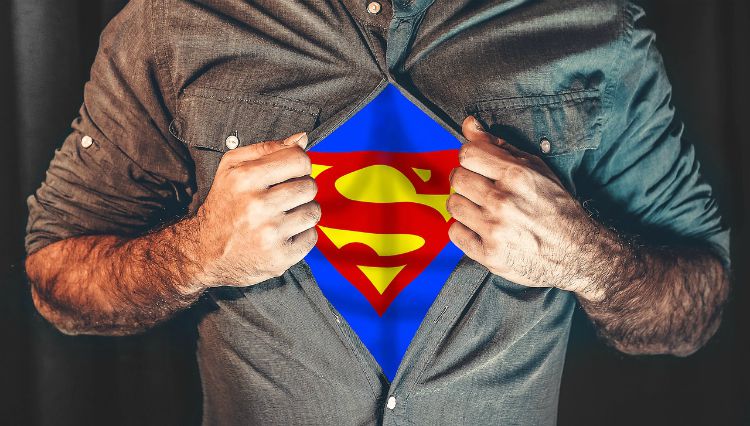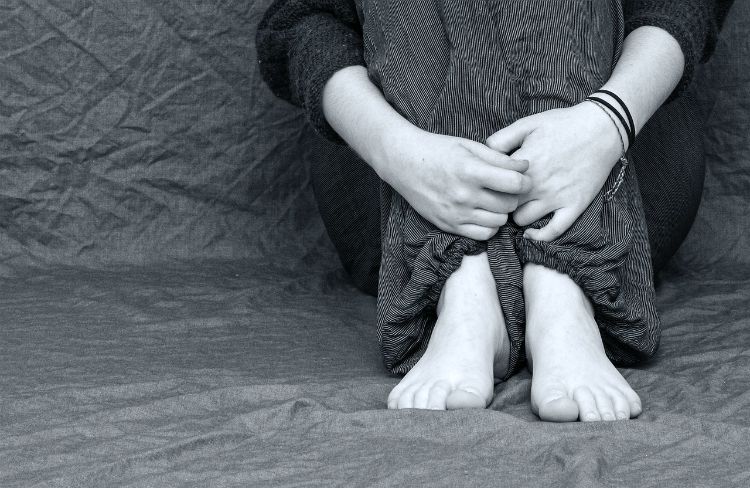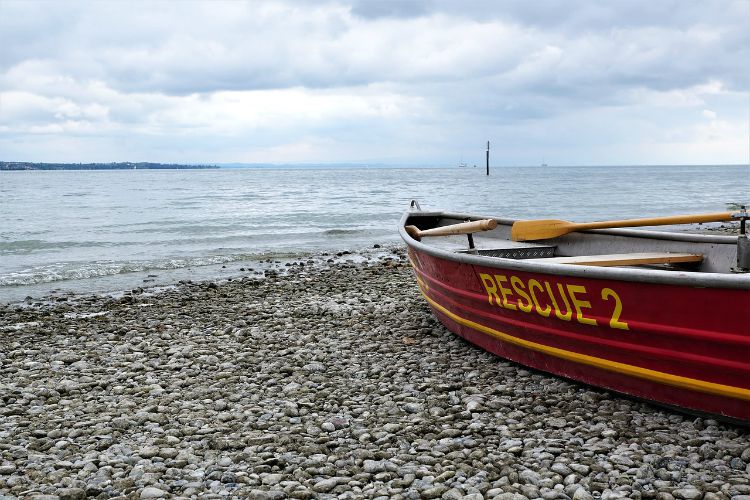
When you’ve been the underdog, the downtrodden, the black sheep, the alienated one it can be easy to get stuck in the trap of helping other people to the detriment of your own wellbeing. When I was in my earlier years of my spiritual journey, I used to feel it was not only my duty, but my path to help other people and while I know I am here to serve, back then I was doing so from a place of need, not from wisdom.
I was always attracting new friends who had major issues. I initially loved the interaction between the dynamics of rescuer – victim. I had no idea at the time I was drawing people to me who were feeling needy and I wanted to fulfil that need, because I felt my value and worth came from being this saviour in a way. The downside was that as a rescuer archetype, there tends to be within the rescuer the opposite role of victim. The desire to be rescued by others too.
While I was feeling I was doing good work as a healer, a guide, a counsellor in many ways, I was also feeling like I needed help myself and so I drew to myself other rescuer archetypes in the roles of what I perceived as teachers.
It took me many years to see this pattern, especially how I would get to the point of feeling empowered and those rescuer people would try to hold onto me, switching to becoming the persecutor and even verbally abusing me for leaving the fold of their guidance. It was a major learning curve, because I could also see that those friends who I was trying to rescue, when they began to feel empowered, I noticed our conversations would come to a halt, we had nothing in common apart from the rescuer/victim story we were playing out.
It was then that I knew I had to stop asking for help from others and stop thinking that other people knew me better than I knew myself and I also had to start helping myself and taking full responsibility for those issues I had thought others could fix for me. Once I did this I stopped attracting victim souls.
What Is The Rescuer Archetype?

The behavior of the Rescuer Archetype can be recognized by the person who desires to “fix” everyone. They seem to constantly search for what is “wrong” so that they can feel heroic about “fixing” the other person.
In some cases she notices in him a huge “missing piece” in her life, while he sees the missing piece from his own life in her. This often occurs subconsciously at first. They find they are attracted to each other by these complementary, polarizing frequencies.
Neither feels whole. They spend their time together diligently working on fixing the other…co-dependency thrives! “
What is The Victim Archetype?
“Blames everyone and everything for their unhappiness
Uses guilt as a manipulation strategy. They love people who pity them as this is one of the ways they get their energy.
Because they don’t take responsibility for their life circumstances they tend to reject any tools or resources that would help them get out of this karmic loop.”
~ From in-light-ment.com
The Victim and the Rescuer are part of the Drama Triangle which includes the Persecutor/Intimidator as the third member. This role is essential in creating the Victim status, who then needs the Rescuer.
Acknowledging we have been both the rescuer and the victim is a big deal to own up to. It is very cathartic and healing to acknowledge our weaknesses so we can then empower our strengths as humans. We learn to see that our worth and value does not come from other people and we begin to self-validate and this is the most important step to take.
Whether you feel the need to help consistently or you feel you are looking outside of yourself for answers all of the time, begin to feel into where this comes from? What part of you feels that you need to distract yourself from your own inner pain that needs your attention? And what part of you feels unworthy of taking care of you?
And if you are in a healing role or guidance role, ask yourself if you need to heal others in order to distract from your own issues that you need to deal with or because genuinely your heart is guiding you to do so.
In addition, remember, that if the person in the victim role gets frustrated with the attempts of the rescuer to fix them, they can then turn into the persecutor role. This is the Drama Triangle.
Toxic Relationships Are Often Full of Rescuers and Victims

Whether you are in a relationship with a narcissist, addict (or sometimes both), if you want things to change you have to own up to the stark reality and truth of the situation before change can happen. This often means leaving the relationship. As painful as this can be, narcissists and addicts need professional help and until they request and commit to this help, the change will not come from you anyway, if you are in the rescuer role. And also remember you are not a victim to this experience, you can choose differently. This person is not a victim, you are not the saviour, and neither are you a victim to this toxicity. It was a pattern that two people needed for one reason or another, until one or both of them choose to release this pattern of co-dependency and pain.
It can be easy to think that you will be the one that saves the wounded soul, but generally, probably most often, it does not happen, because the other person does not choose this to be so.
My Narcissist Victim / Rescuer Relationship
When I was in a relationship with a vain narcissist, I was lucky in the sense that I had some awareness of what was toxic and what was not. I actually saw the red flags as they were happening, but I was too involved to listen to them.
I was ‘in love’, but not with the man in question, I was in love with the idea of love. I had been single for over 10 years and I yearned for companionship, I yearned for physical affection and I received it, but it was not healthy relating. The physical affection was on his terms and some of it was not loving or kind to me as a woman, but I accepted it because I was longing for connection.
What changed for me was when I received the news that I had a high degree of pre-cancer cells on my cervix and I had to have an operation. When he said it was nothing to do with him, and that I had to go on my own, I knew that I was allowing myself to be mistreated. I was not a victim in this, I was blinded by my perception of love, the desire to feel wanted and because of this I allowed myself to be abused. This is when I let go of being a victim, he was still trying to save me, thought I needed fixing on many levels and it was his job, but I knew it was not his job it was mine alone.
I walked away, I cried some tears, but something in me did not allow myself to grieve for too long, I knew all I was crying for was the loss of what I perceived to be the ‘ideal’ in love. My ideal. He ticked a few boxes but mostly he did not.
Relationships are challenging growing experiences. We learn, we grow, all are of value in some way shape or form. Sometimes to feel genuine real love, other times to simply open our hearts to that feeling of love (not for the other person, but the love itself) and many times we are in that relationship to discover what is not love, to recognise our own value and worth through those who we allow to mistreat us. All stepping stones on the relationship pathway.
Why Is it Unhealthy To See Helping Others As Your Sole Mission in Life?
If your helping is masking your inner need for self-care, this is when helping is unhealthy.
When we are helping so much, we are dis-empowering the person we are supposedly helping, we are helping in an unhealthy way. Disempowering others can come in many forms when being the rescuer type.
- Always giving guidance and not letting the other person think for themselves
- Rescuing someone from a difficult situation over and over again and not allowing them to learn to stand on their own two feet
- Bailing someone out financially time and time again, when they have an issue with overspending, gambling or drug habits
- Giving help to someone and when they say they don’t need it, verbally abusing them for not listening or taking on your advice
- Not listening when the other person states clearly they don’t need help
So many of us do this or have done this, it’s part of the human journey of relationships. As the saying goes they can be there for a reason, a season or a lifetime. Some are simply learning experiences where two souls come together to grow, or one soul grows. You never know how another person is taking in the lesson you both came to learn.
In my previous relationship I said a lot of home truths to the man in question, I was very clear how toxic it was and I was surprised to learn a few years later that he had realised that he had treated me badly. This was probably the first time he had admitted this. So no matter how badly a relationship ends you never know what affect you are having on another human being by letting them go.
In what way do you need to acknowledge the roles you play in life right now?
